£60 BILLION WIPEOUT: UK mining stocks have been crushed over the last 6 months
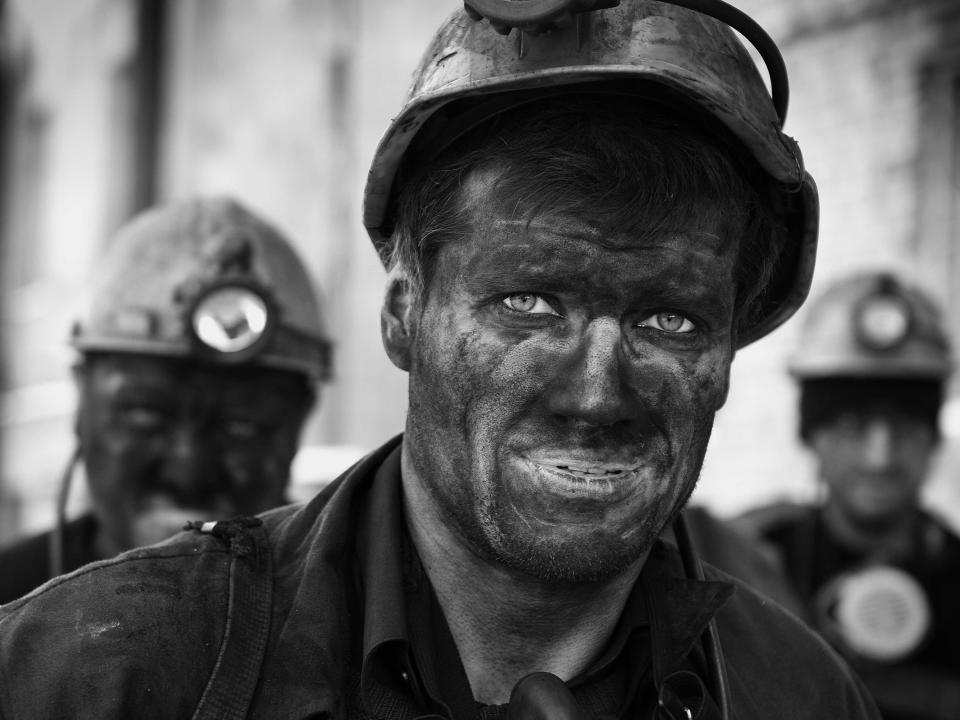
ERIC FEFERBERG/AFP/Getty Images
More than £60 billion ($86.3 billion) has now been wiped off the market value of Britain's biggest mining companies since last summer, according to calculations by Business Insider.
Friday marked another day miners will want to forget, as stocks continued to crash.
The price of oil has plunged below $30 (£21.99) per barrel — down over 70% from triple digit figures from June 2014. Meanwhile, countless other raw materials, from rice to nickel are crashing.
The UK's top five mining companies were the five biggest fallers on the FTSE 100. Anglo American led the way with losses of 11.88% and Glencore was runner-up, down 7.05%. Friday is just a microcosm of what's been going on in the industry over the last 6 months.
The Bloomberg Commodity Index has crashed to its lowest in 25 years, and that's obviously having a massive impact on mining companies, which live or die on the price of the stuff they dig out of the ground.
Since July last year, the biggest miners listed in the UK — Anglo American, Antofagasta, BHP Billiton, Glencore, and Rio Tinto — have lost a combined total of more than £60 billion ($86.3 billion) from their market value, almost halving their total market capitalisations.
Here's a look at the spectacular falls from grace some of the world's biggest mining companies in the last six months.
Anglo American — £9.15 billion wiped out
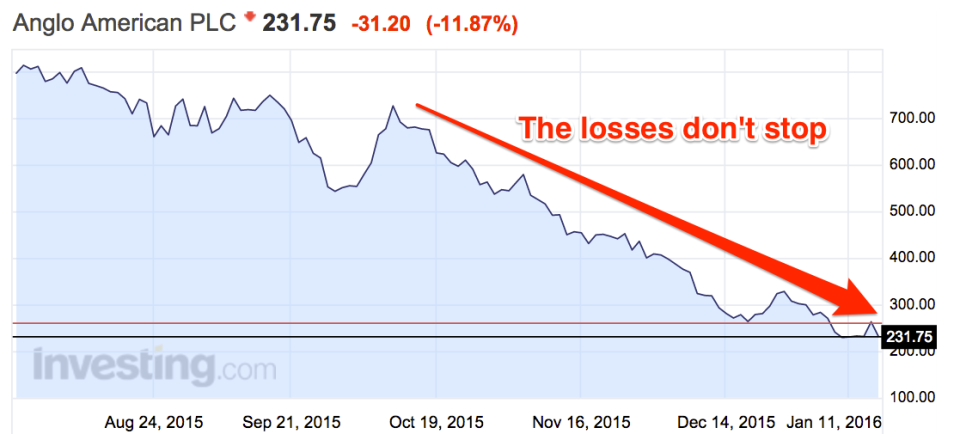
ERIC FEFERBERG/AFP/Getty Images
In percentage terms, Anglo American is by far the worst loser of the miners in the past six months. Its shares led the FTSE100 in losses over the course of 2015, and since July last year has tanked by 72%.
Along with seeing its shares crash, Anglo has been forced into a "radical" restructuring of its business, including cutting nearly a third of its total staff worldwide, and dumping a whole heap of assets. It started the asset dumps just before Christmas, when an Australian iron ore mine was sold.
Glencore — £22.3 billion wiped out
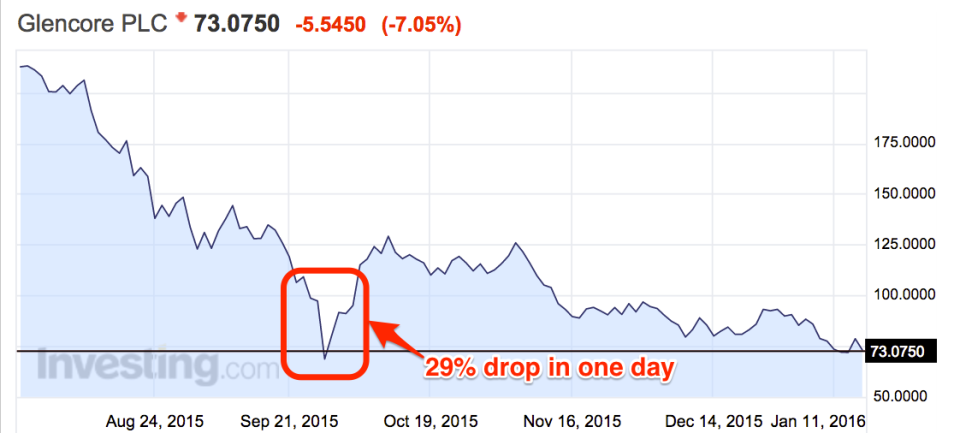
ERIC FEFERBERG/AFP/Getty Images
Financially speaking, Glencore has booked the biggest losses, but that's mainly because of how massive its market cap used to be. When the Swiss-based firm listed its shares on the FTSE100 in mid-2011, it was worth roughly £70 billion ($100 billion). Five and a half years and one commodity price crash later, Glencore is worth less than £10 billion ($14.3 billion), and has lost 86% of its value.
One of Glencore's biggest problems is its monumental pile of debt. Analyst estimates in October put its net debt at as much as $100 billion (£70 billion), although the company itself argues that the figure has never exceeded $50 billion (£34.9 billion). Glencore has started to cut down its debts, and is now targeting a net debt of around $18 billion (£12.6 billion) by the end of this year.
On a single day in September, Glencore had 29% wiped off its shares, after an Investec note warned that the company could "evaporate" because of its massive debts.
BHP Billiton — £13 billion wiped out
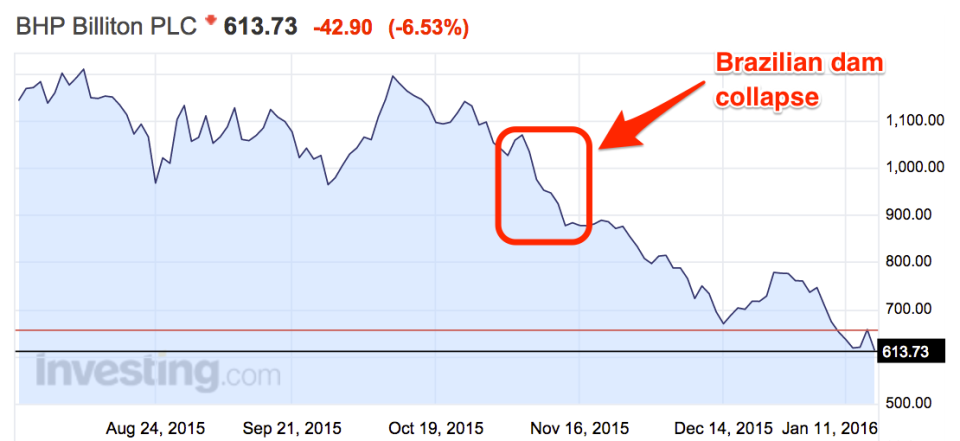
ERIC FEFERBERG/AFP/Getty Images
BHP has another headache to deal with besides commodity prices. In November, a dam owned jointly by BHP and Brazilian miner Vale collapsed in Brazil, flooding a massive area, killing 17 people, and causing untold damage to the environment. The joint owners of the mine were fined around £171 million ($260 million) by the Brazilian government, a fine both companies could scarcely afford.
Since July, BHP Billiton's market capitalisation has almost exactly halved, and shares are now worth just £6.16 ($8.83) each.
Rio Tinto — £13 billion wiped out
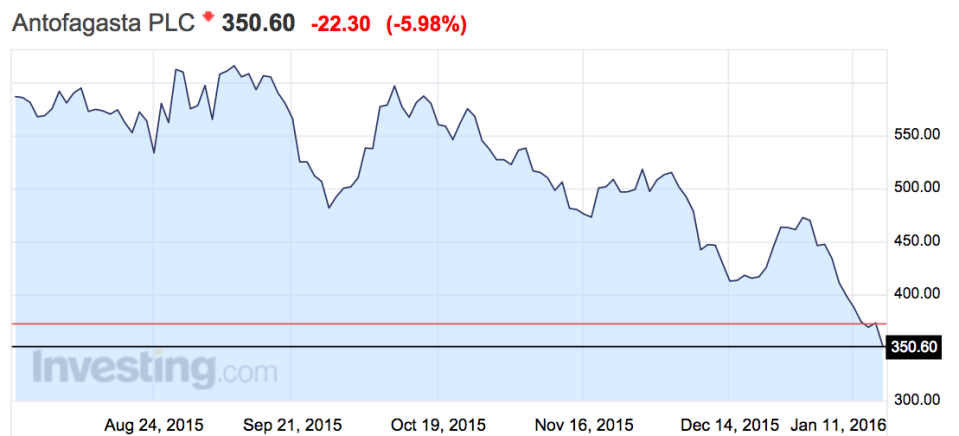
ERIC FEFERBERG/AFP/Getty Images
Rio Tinto, has the biggest market cap of any British listed miner, and its size means that relatively speaking, it has managed to weather the commodities storm. The £13 billion ($18.6 billion) wiped from shares since July accounts for a fall of around 36%.
Rio Tinto isn't completely insulated from the crash though, and this week the company announced it is freezing pay for all 60,000 of its employees, with a memo from CEO Sam Walsh telling all staff that the mining industry has reached a "new normal" and that the current situation is "very sobering."
Antofagasta — £3 billion wiped out
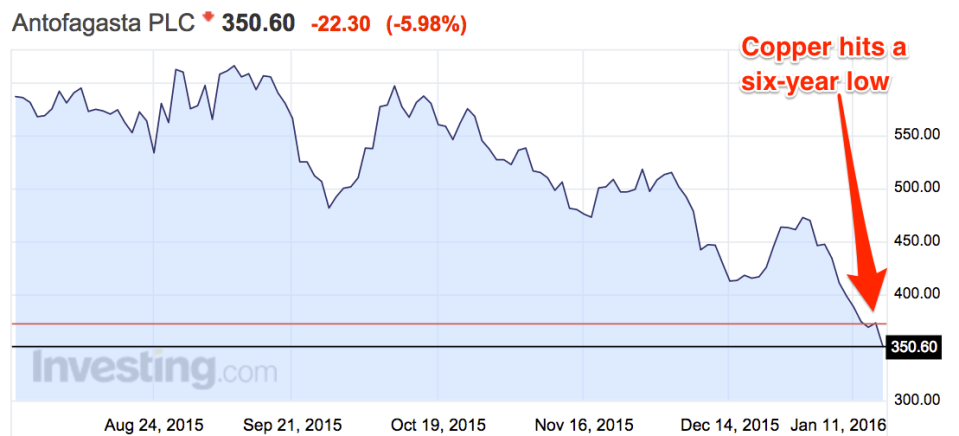
ERIC FEFERBERG/AFP/Getty Images
Despite currently being substantially smaller than many of the other stricken miners, Chilean copper miner Antofagasta hasn't been spared from the crash, and has lost half of its total market value in just sixth months. Last week copper hit its lowest level in six years, and the slide in prices has been so bad that Antofagasta is now worth just a quarter of what it was in 2011 when copper was at its peak.
What's going to happen?
With no end in sight for the commodity price slide — the 22 commodity Bloomberg Commodity Index has fallen 5.6% in two weeks of trading this year — things are only going to get worse for mining companies.

ERIC FEFERBERG/AFP/Getty ImagesAnalysts are predicting that the oil slide isn't going to stop any time soon, and Business Insider's Linette Lopez last week suggested that big commodity companies and exporters struggling could be the biggest story of 2016.
Perhaps most worrying is the potential for what analysts are calling the "second round effects" of the commodity price crash. We've already seen the first round, where smaller companies were hit particularly hard, and some even ended up folding, but what's coming next could be even worse.
As Linette Lopez pointed out people are now starting to predict that in 2016 even the biggest companies are going to be punished. Strategist Kit Juckes from Societe Generale said in a note last week that the so-called "second round effects of lower commodity prices ... may dominate in 2016."
Whether or not 2016 will see actually see the "evaporation" of one of the world's biggest commodity firms, as Investec suggested, no one knows. But expect things to get worse before they get better.
NOW WATCH: 5 of the most successful 'Shark Tank' stories of all time
See Also:
A Harvard nutrition expert explains why the advice to eat 'everything in moderation' is 'useless'
Adele has told Donald Trump he doesn't have permission to use her music in his presidential campaign
What life is like for the hundreds of rural Brazilians who still mine diamonds by hand
SEE ALSO: You have to go back to the 1930s to find a worse commodities rout

 Yahoo Finance
Yahoo Finance 
